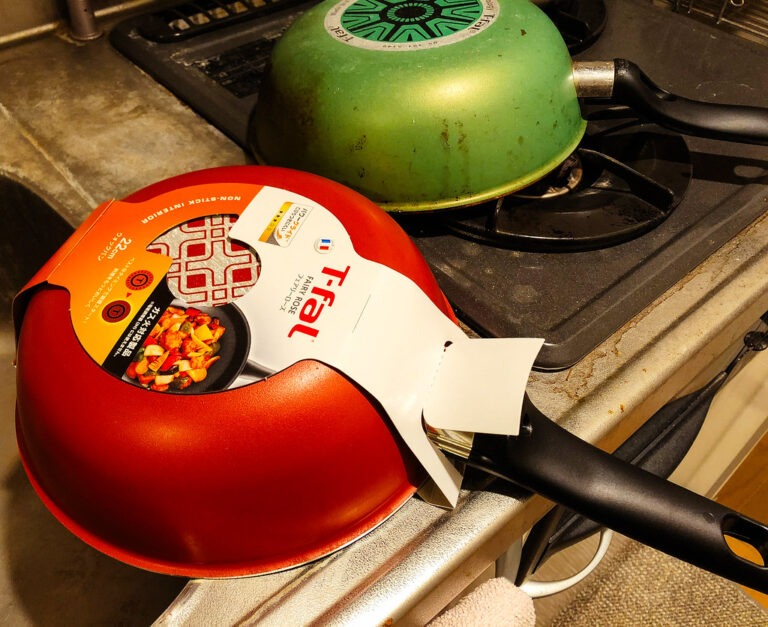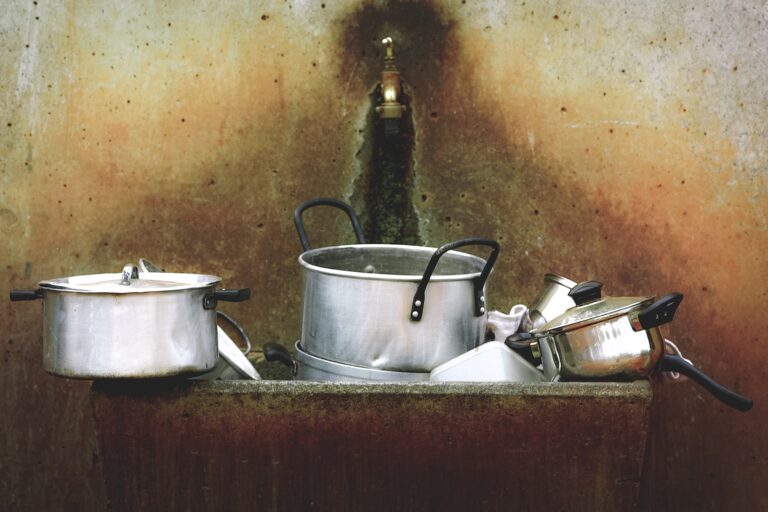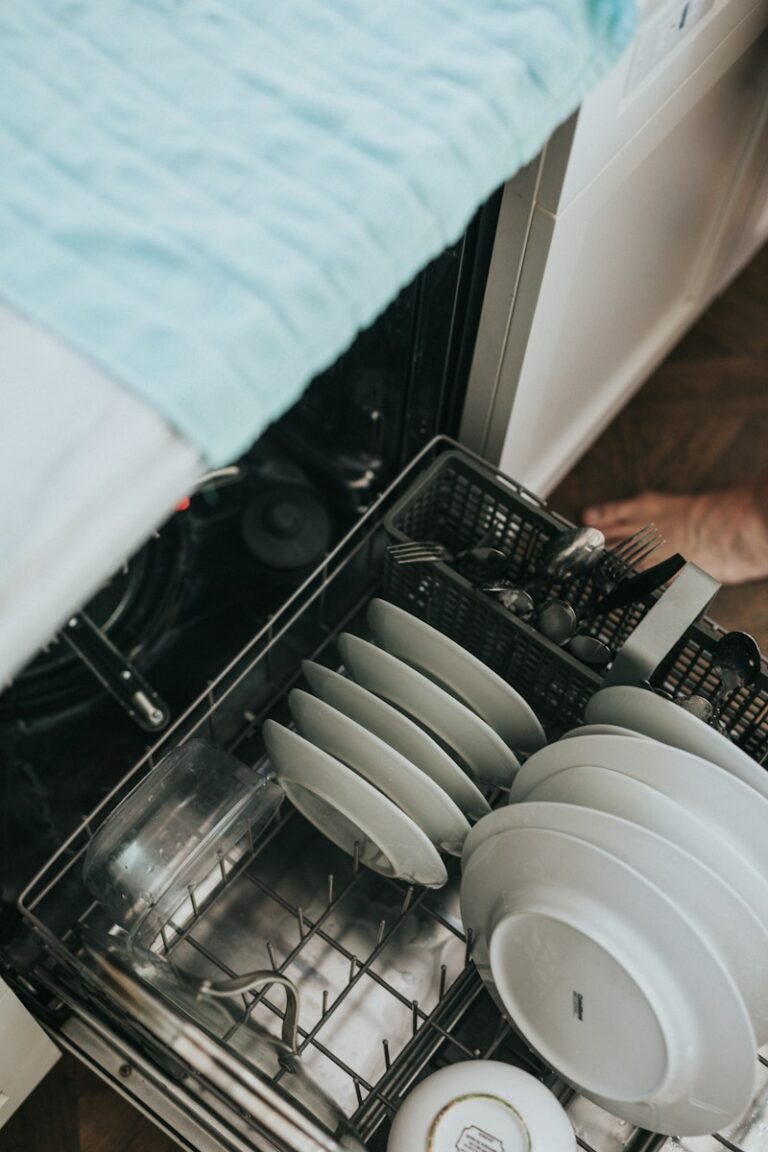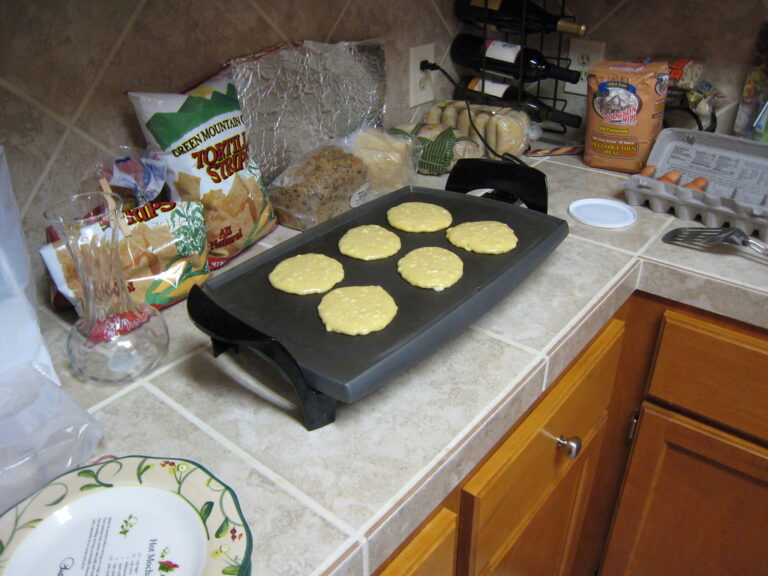Looking for the perfect mini loaf pan? You’ve come to the right place!
In this article, we’ll explore different materials for mini loaf pans and help you choose the one that suits your baking needs.
Whether you prefer aluminum, silicone, ceramic, glass, or non-stick pans, we’ve got you covered.
So, let’s dive in and discover the best mini loaf pan material for your next baking adventure!
Key Takeaways
- Aluminum Mini Loaf Pans: Durable material that resists corrosion and rust, lightweight and easy to handle, even heat distribution for uniform cooking, grease pans before use to prevent sticking.
- Silicone Mini Loaf Pans: Non-stick surface for easy release of baked goods, heat-resistant and can withstand high temperatures, may require a baking sheet for stability, retains odors so clean thoroughly after each use.
- Ceramic Mini Loaf Pans: Excellent heat distribution for consistent baking, non-stick surface for easy removal of baked goods, versatile for baking bread, cakes, meatloaf, and desserts, hand wash with warm, soapy water, avoid metal utensils.
- Glass Mini Loaf Pans: Non-reactive material that doesn’t affect taste or color, even heat distribution with no hot spots, microwave-safe for reheating leftovers or frozen bread, choose pans that fit easily in kitchen cabinets or drawers.
- Non-Stick Mini Loaf Pans: Easy release of baked goods without sticking or tearing, quick and easy cleanup with minimal effort, reduce the amount of oil or butter needed for greasing, hand wash with mild dish soap, avoid abrasive cleaners.
Aluminum Mini Loaf Pans
Aluminum mini loaf pans are a popular choice for baking small breads or desserts. They offer several advantages over other materials.
First, aluminum pans provide even heat distribution, ensuring that your baked goods are cooked uniformly.
Second, they are lightweight and easy to handle, making them convenient for both baking and storing.
Additionally, aluminum is a durable material that resists corrosion and does not rust, ensuring that your pans will last for a long time.
When it comes to cleaning and maintaining aluminum mini loaf pans, there are a few tips to keep in mind.
To prevent sticking, it is recommended to grease the pans before use.
After baking, allow them to cool completely before washing with warm, soapy water.
Avoid using abrasive cleaners or scrub brushes, as they can scratch the surface.
With proper care, your aluminum mini loaf pans will continue to deliver delicious baked goods for years to come.
Silicone Mini Loaf Pans
Silicone mini loaf pans are popular due to their flexibility and ease of use. One advantage of using silicone mini loaf pans is their non-stick surface, which makes it easy to release the baked goods without any sticking or breaking. Additionally, silicone pans are heat-resistant, allowing them to withstand high temperatures without warping or melting.
However, there are also disadvantages to using silicone mini loaf pans. They can be flimsy and may require a baking sheet underneath for stability. Furthermore, silicone pans can retain odors from previous bakes, so it’s important to thoroughly clean them after each use.
To clean and maintain silicone mini loaf pans, simply wash them with warm soapy water or place them in the dishwasher. Avoid using sharp utensils or abrasive scrubbers, as they can damage the silicone surface. Proper care and cleaning will ensure your silicone mini loaf pans last for a long time.
Ceramic Mini Loaf Pans
When using ceramic mini loaf pans, you’ll appreciate their ability to distribute heat evenly, resulting in perfectly baked goods.
Here are some benefits of using ceramic mini loaf pans:
- Heat distribution: Ceramic pans have excellent heat retention and distribution properties, ensuring that your mini loaves are cooked evenly throughout. This helps to prevent undercooked or overcooked spots, giving you consistent results every time.
- Non-stick surface: Most ceramic mini loaf pans come with a non-stick surface, making it easy to remove your baked goods without any sticking or tearing. This also makes cleaning up a breeze, as the non-stick surface prevents food from sticking to the pan.
- Versatility: Ceramic mini loaf pans are not only great for baking bread, but they can also be used for making individual cakes, meatloaf, and even desserts. Their versatility allows you to experiment with different recipes and create a variety of delicious treats.
To properly care for your ceramic mini loaf pans, remember to:
- Hand wash them with warm, soapy water instead of using a dishwasher.
- Avoid using metal utensils that can scratch the surface of the pan.
- Allow the pans to cool down completely before cleaning or storing them to prevent thermal shock.
Taking care of your ceramic mini loaf pans will ensure their longevity and continued performance in the kitchen.
Glass Mini Loaf Pans
If you’re looking for an alternative to ceramic, glass mini loaf pans are a great option.
There are several benefits to using glass mini loaf pans for baking.
First, glass is a non-reactive material, so it won’t affect the taste or color of your baked goods.
Second, glass pans distribute heat evenly, resulting in consistent baking and no hot spots.
Third, glass is microwave-safe, so you can easily reheat leftovers or warm up frozen bread.
When choosing the right size and shape of glass mini loaf pans, consider the recipe you’ll be using.
Some recipes may require a specific size or shape to ensure even baking.
Additionally, think about the storage space you have available for the pans.
Opt for pans that can easily fit in your kitchen cabinets or drawers.
Non-Stick Mini Loaf Pans
For easy cleanup, consider using non-stick mini loaf pans. They require less oil or butter to grease and your baked goods will effortlessly slide out. Here are the benefits of using non-stick mini loaf pans:
- Easy release: The non-stick coating ensures that your mini loaves come out of the pan cleanly, without sticking or tearing. This means you won’t have to struggle to remove your baked goods, and they will retain their shape and texture.
- Quick clean-up: Non-stick pans are a breeze to clean. Food residue slides right off with minimal effort, saving you time and energy in the kitchen.
- Healthier baking: With non-stick pans, you can reduce the amount of oil or butter needed to grease the pan. This means you can enjoy your favorite mini loaves with less added fat, making them a healthier option.
To maintain the non-stick coating on your mini loaf pans, follow these tips:
- Avoid using metal utensils that could scratch or damage the coating. Stick to silicone, plastic, or wooden utensils instead.
- Hand wash your pans with a soft sponge or cloth, using mild dish soap. Avoid using abrasive cleaners or scrub brushes that could wear down the non-stick surface.
- Allow your pans to cool completely before cleaning them, as sudden temperature changes can affect the non-stick coating.
Conclusion
So there you have it, a breakdown of the different materials used for mini loaf pans. Whether you prefer the durability of aluminum, the flexibility of silicone, the elegance of ceramic, or the transparency of glass, there is a mini loaf pan out there to suit your baking needs.
And if you’re looking for easy release and quick cleanup, a non-stick mini loaf pan is the way to go. So go ahead, choose your favorite material and start baking some delicious mini loaves today!



